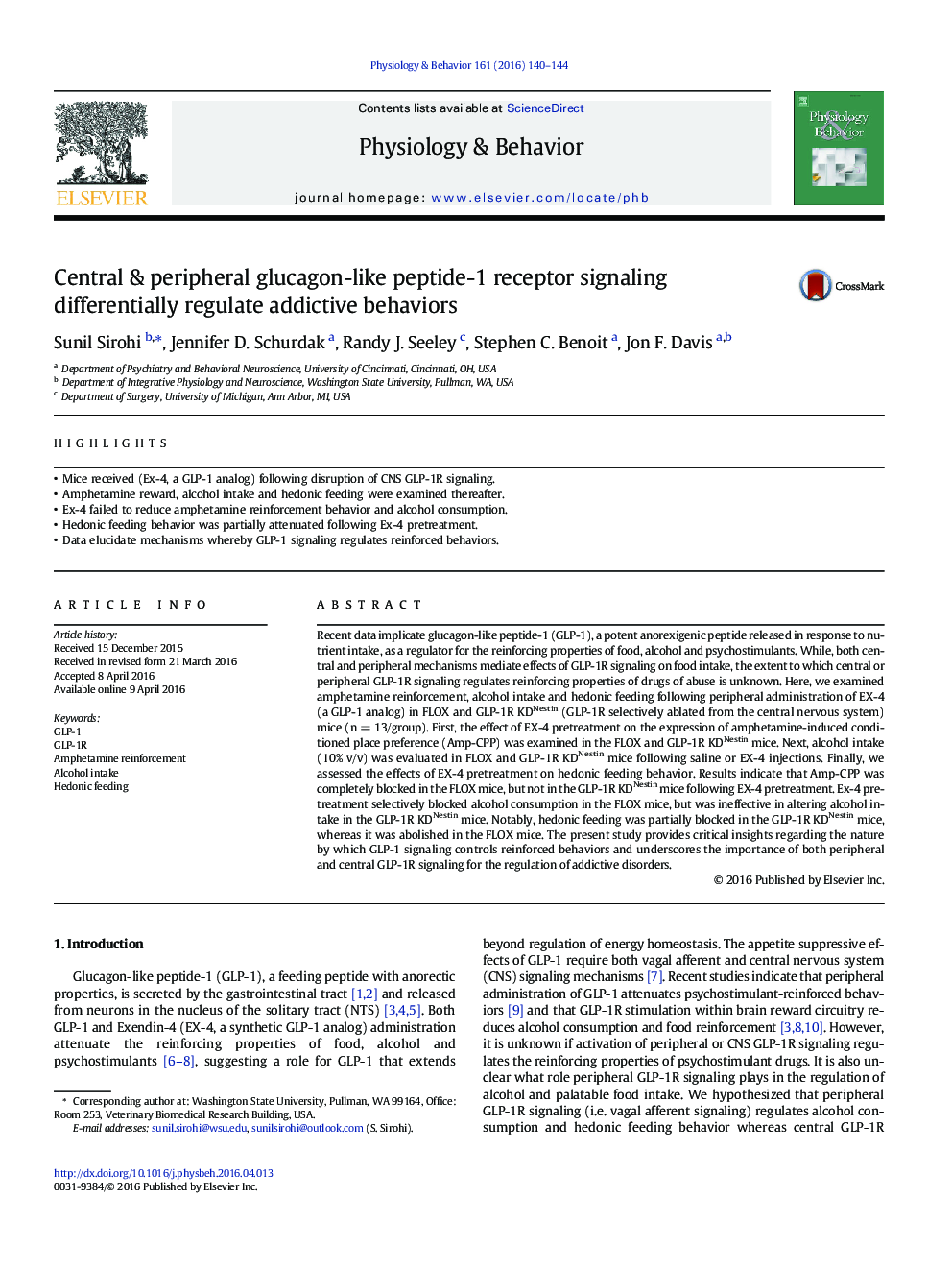| Article ID | Journal | Published Year | Pages | File Type |
|---|---|---|---|---|
| 2843884 | Physiology & Behavior | 2016 | 5 Pages |
•Mice received (Ex-4, a GLP-1 analog) following disruption of CNS GLP-1R signaling.•Amphetamine reward, alcohol intake and hedonic feeding were examined thereafter.•Ex-4 failed to reduce amphetamine reinforcement behavior and alcohol consumption.•Hedonic feeding behavior was partially attenuated following Ex-4 pretreatment.•Data elucidate mechanisms whereby GLP-1 signaling regulates reinforced behaviors.
Recent data implicate glucagon-like peptide-1 (GLP-1), a potent anorexigenic peptide released in response to nutrient intake, as a regulator for the reinforcing properties of food, alcohol and psychostimulants. While, both central and peripheral mechanisms mediate effects of GLP-1R signaling on food intake, the extent to which central or peripheral GLP-1R signaling regulates reinforcing properties of drugs of abuse is unknown. Here, we examined amphetamine reinforcement, alcohol intake and hedonic feeding following peripheral administration of EX-4 (a GLP-1 analog) in FLOX and GLP-1R KDNestin (GLP-1R selectively ablated from the central nervous system) mice (n = 13/group). First, the effect of EX-4 pretreatment on the expression of amphetamine-induced conditioned place preference (Amp-CPP) was examined in the FLOX and GLP-1R KDNestin mice. Next, alcohol intake (10% v/v) was evaluated in FLOX and GLP-1R KDNestin mice following saline or EX-4 injections. Finally, we assessed the effects of EX-4 pretreatment on hedonic feeding behavior. Results indicate that Amp-CPP was completely blocked in the FLOX mice, but not in the GLP-1R KDNestin mice following EX-4 pretreatment. Ex-4 pretreatment selectively blocked alcohol consumption in the FLOX mice, but was ineffective in altering alcohol intake in the GLP-1R KDNestin mice. Notably, hedonic feeding was partially blocked in the GLP-1R KDNestin mice, whereas it was abolished in the FLOX mice. The present study provides critical insights regarding the nature by which GLP-1 signaling controls reinforced behaviors and underscores the importance of both peripheral and central GLP-1R signaling for the regulation of addictive disorders.
